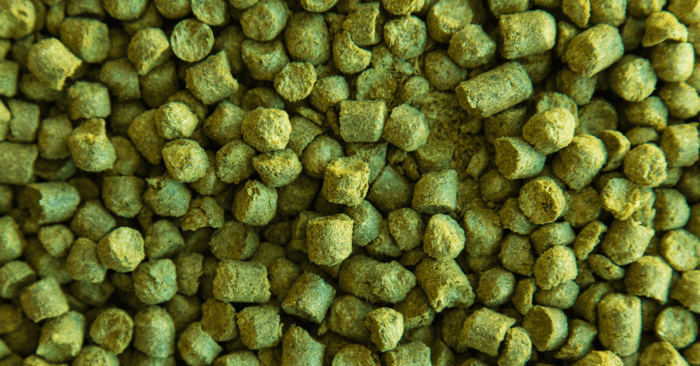Ever wondered what separates good homebrewers from great ones? Sometimes it comes down to having the right setup, the right mindset, and maybe just a little bit of that brewing magic we all chase. Today we're sitting down with Jon Martin from Marfly Brewing Co., who's built something pretty special – a home brewery that's turning heads and winning competitions.
Jon's story isn't just about impressive equipment (though trust us, his setup is drool-worthy). It's about passion, family legacy, and the relentless pursuit of that perfect pint. Ready to dive into what makes a truly exceptional home brewery? Let's get brewing.
The Spark That Started It All
Picture this: a young Jon Martin hearing his grandmother's tales about his grandfather's brewing adventures – including one memorable night when beer bottles decided to throw their own explosive party. Fast forward 25 years, and that family story became the catalyst for Jon's brewing journey.
"I decided to try making beer for myself, thinking that maybe I could redeem my grandfather's efforts in beer making," Jon tells us. Talk about family redemption arcs – we love it!
The name "Marfly Brewing Company" reflects Jon's core values perfectly. Standing for the Martin family, it represents how brewing becomes woven into the fabric of who we are. As Jon puts it, "Everything I do in life is always related to my family."
Building Dreams: The Two-Year Planning Journey
Here's where Jon's competitive streak really shines through. He wasn't content with just making beer – he wanted to create a system that could consistently nail any style, batch after batch. Sound familiar? We bet it does.
The planning phase took two full years of research, comparison shopping, and probably more than a few sleepless nights dreaming about grain bills and hop schedules. After evaluating every system on the market, Jon kept circling back to one choice, The G30.
"I wanted a system that would allow me to consistently make any style of beer, over and over with little to no differences in taste," Jon explains. That's the kind of brewing precision we can get behind.
Brew Day Mastery: Jon's Winning Routine
Want to know how a competition-winning brewer approaches brew day? Jon's got it down to a science, and it starts the night before.
Pre-Brew Prep:
- Check R.O. water levels in the holding tank
- Measure and organize all additives
- Prepare yeast starter 3-5 days in advance
Brew Day Timeline (9:00 AM start):
- Move yeast starter to fridge for cooling and settling
- Connect iPad to Grainfather controller
- Test pump and heater functionality (smart move!)
- Follow recipe programming through the system
Post-Boil Process:
- Cool wort using the system's built-in chilling
- Transfer to Conical Fermenter for temperature control
- Warm yeast to match wort temperature
- Aerate with oxygen before pitching yeast
Pro tip from Jon: "It's better to find a pump that needs attention before you have hot water in the kettle." Been there, done that – equipment checks save brew days!
Batch Size Strategy and Learning from Failures
Jon keeps his batches at 5 U.S. gallons (19 L), and his reasoning makes perfect sense. Smaller batches make temperature and additive control tricky, while larger batches push the G30's capacity limits. It's that Goldilocks zone of brewing efficiency.
But here's what we really respect about Jon's approach – he's honest about failure. His first three batches? "Horrible." His words, not ours. Every great brewer has those early disasters that teach us more than any textbook ever could.
The Competitive Edge: Why Style Matters More Than Clones
Jon's not interested in copying commercial favorites – he's focused on mastering beer styles. "I like to make a style of beer, not necessarily a clone of a commercial beer," he explains. That's the mark of a true craftsperson right there.
His go-to style? Saison. "It's the one beer that is easy to make, and all of my friends seem to enjoy." Sometimes the best beers are the ones that bring people together around your kitchen table.
Building Your Brewing Community
Here's where Jon drops some serious wisdom about the social side of brewing. He never brews alone, always seeking that collaborative energy that makes great beer even better.
"It doesn't matter if the brewer has more or less experience than you. You will always learn something from the conversations you have," Jon shares. He credits his mentor Chris Humble as a top reason for his brewing improvements – proof that having a brewing buddy can level up your game.
Jon's also part of the Red Rice Brew Krewe (find them on Facebook!), showing how local brewing communities become extended families. Can't find a local club? Start one. The brewing community is always ready to welcome new members.
Blueprint for Your Ultimate Home Brewery
Planning your own dream setup? Jon's got practical advice that'll save you time, money, and probably a few headaches:
Step 1: Measure your available space (twice!)
Step 2: List all desired equipment with exact dimensions
Step 3: Sketch it out on paper – multiple versions
Step 4: Get feedback from fellow brewers
Step 5: Refine until it works perfectly for your space
"You will need to make several drawings before you get a good working idea of what will work," Jon advises. The planning phase might feel tedious, but it prevents expensive mistakes later.
Competition Success and Future Dreams
Jon's most memorable brew? A Munich Dunkle that took first in category and third best of show. That's the kind of recognition that validates all those early morning brew sessions and late-night recipe tweaking.
Looking ahead, Jon has his sights set on the ultimate prize: "First Place Best of Show." With his complete Grainfather system, he believes the possibilities are endless. After retirement, he dreams of opening a beer garden featuring his own brews alongside other local favorites.
Pairing Perfection and Final Wisdom
Jon's ideal combo? Porter House steak with a cold Saison. Now that's living the good life.
His parting advice hits home: "No matter what level of experience you have in brewing, place your beer in a competition. The lessons you will learn from a seasoned judge are endless."
Competition isn't about winning (though that's nice) – it's about learning, growing, and pushing your brewing to the next level. Whether you're bottling your first batch or perfecting your fiftieth recipe, there's always room to grow.
Grainfather Team









